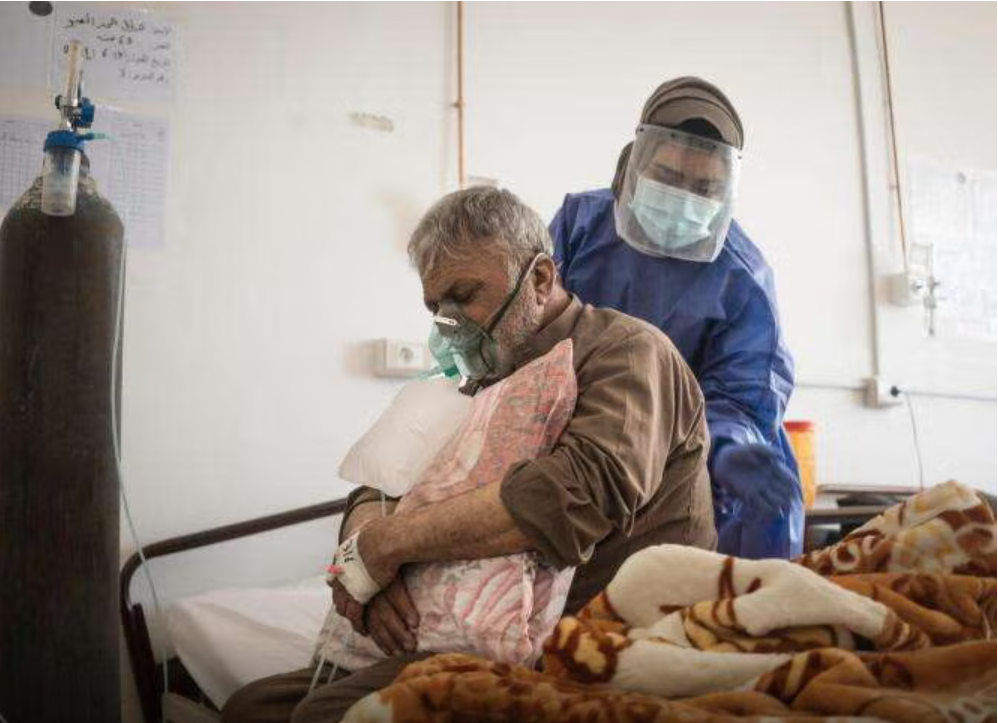Doctors Without Borders/Médecins Sans Frontières (MSF) teams around the world were quick to respond to the COVID-19 pandemic and to the severe disruptions this pandemic had on other essential health services.
MSF teams adapted to the spread of the novel coronavirus in the more than 70 countries where we had existing medical projects. Over the past three years, we have conducted a series of emergency response activities—including temporary operations in Europe and the United States. Today, most COVID-19 activities have been integrated into our regular programs. However, we maintain some focused projects depending on local needs.
Throughout the pandemic, MSF urged companies with important COVID-19 technologies, like those that serve as the backbone of mRNA vaccines, to share them with other producers around the world that stand ready to help expand the global supply. MSF has also demanded that governments like the US that funded the development of these technologies compel companies to share them widely. This pandemic won’t be over for anyone until it’s over for everyone. The longer the virus spreads unchecked, the greater the risk to all of us as new variants continue to spread.
Around the world, our teams cared for COVID-19 patients in treatment centers and hospitals, offering health education and mental health support, provided training for vital infection prevention and control measures, and supported response efforts by local authorities. A key priority was to keep our other lifesaving medical programs running amid this emergency.
MSF teams saw how the rapid spread of the disease overwhelmed health care systems, shattered economies, and altered social life around the world. The human toll of the disease is staggering: COVID-19 has killed more than six million people since it was first reported by the World Health Organization (WHO) in December 2019. There have been more than 758 million confirmed cases—and many more go undocumented.

Learn more about the coronavirus:
What is a coronavirus?
A novel coronavirus was first reported in Wuhan, China, on December 31, 2019. This virus presented particular dangers as there was no known pre-immunity, no vaccine, and no specific treatment. The virus is contagious, and everyone is presumed to be susceptible. MSF teams immediately began working in projects around the world to fight the spread of the coronavirus, and to sustain other lifesaving medical aid for communities further threatened by this new disease.
Coronaviruses are a large family of viruses, most of which are harmless for humans. Four types are known to cause colds, and two other types can cause severe lung infections: Severe Acute Respiratory Syndrome (SARS) and Middle East Respiratory Syndrome (MERS). The novel coronavirus is known as SARS-CoV-2, because of its similarities to the virus that causes SARS.
This new coronavirus seems to target cells in the lungs, and possibly other cells in the respiratory system too. Cells infected by the virus will produce more virus particles, which can then spread to other people, for instance by coughing.
What is COVID-19?
On February 11, 2020, the World Health Organization named this disease caused by the new coronavirus: COVID-19. On March 11, 2020, the WHO declared that the global spread of this previously unknown disease is a pandemic. More than three years later, as of March 13, 2023, COVID-19 has killed 6.88 million people around the world. There have been more than 756 million coronavirus cases around the world—with more cases and deaths in the United States (102 million cases and over 1 million deaths) than in any other country.
COVID-19: More nursing home staff need training to prevent spread of infection

